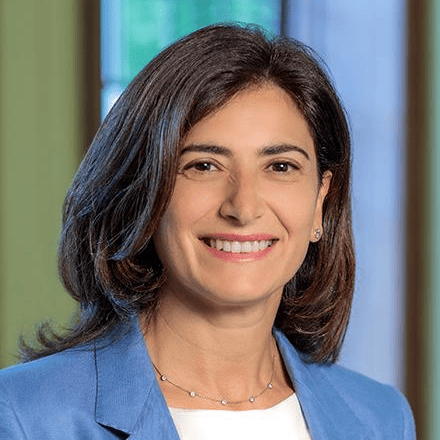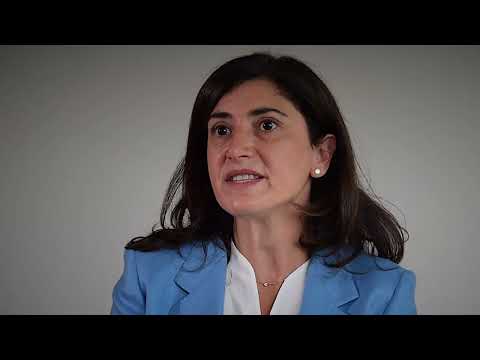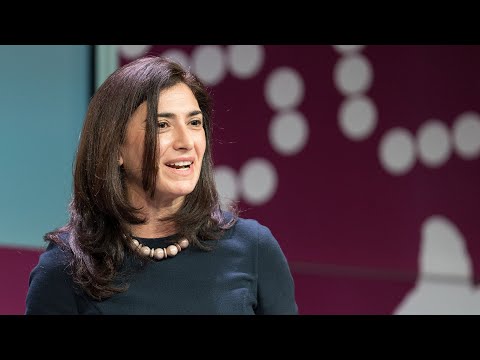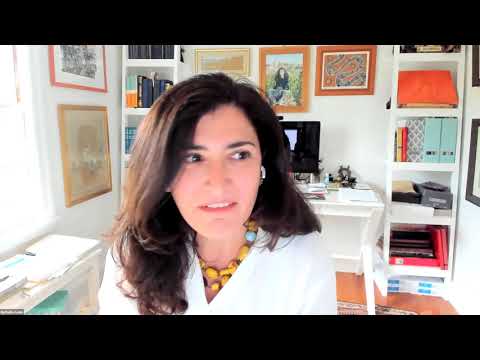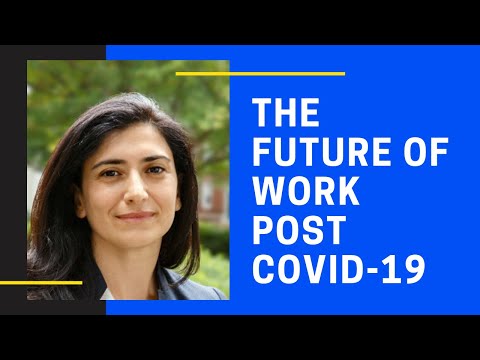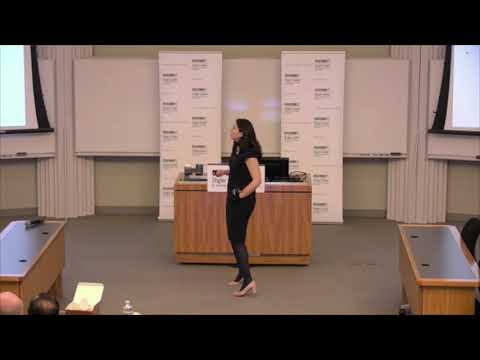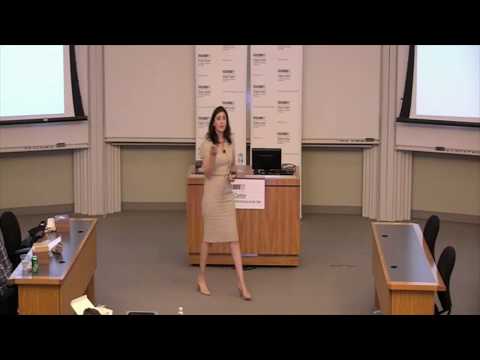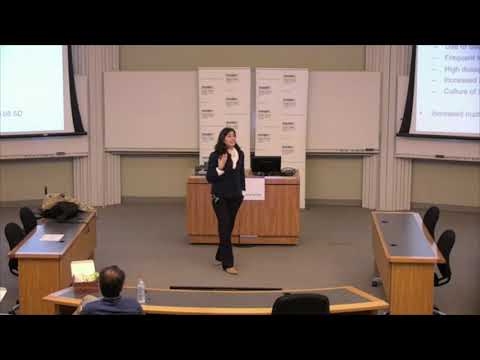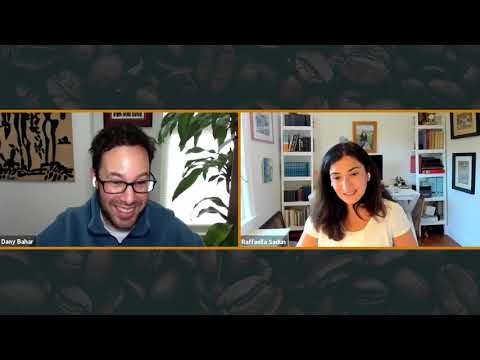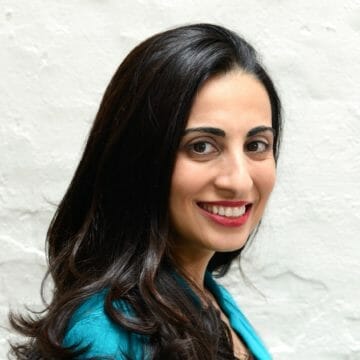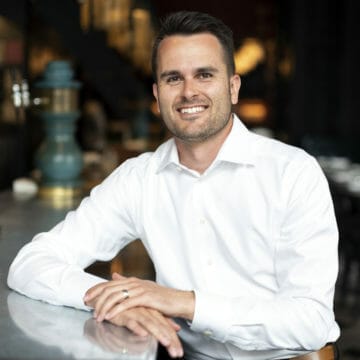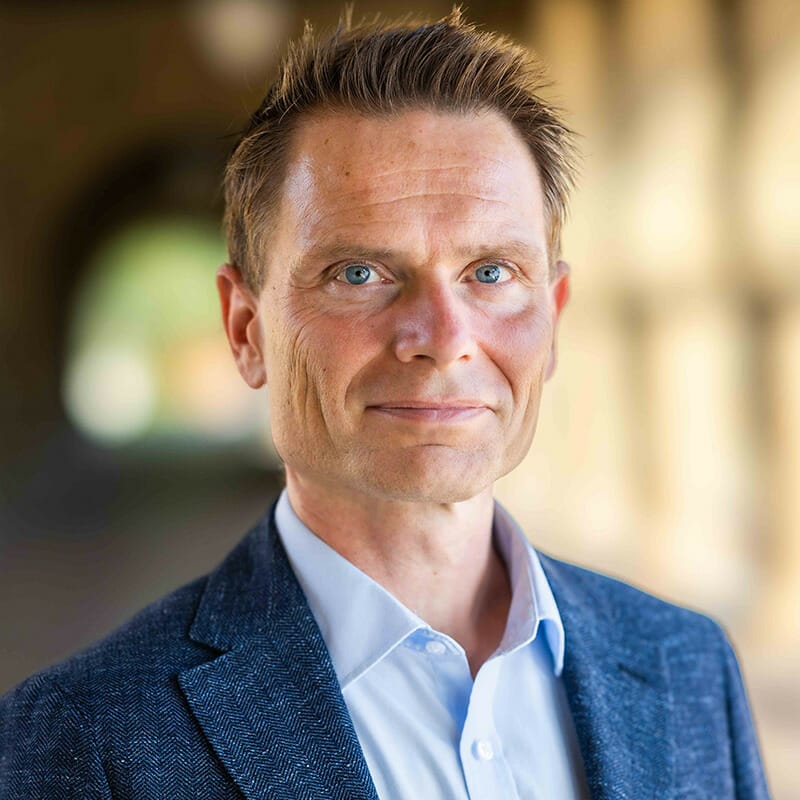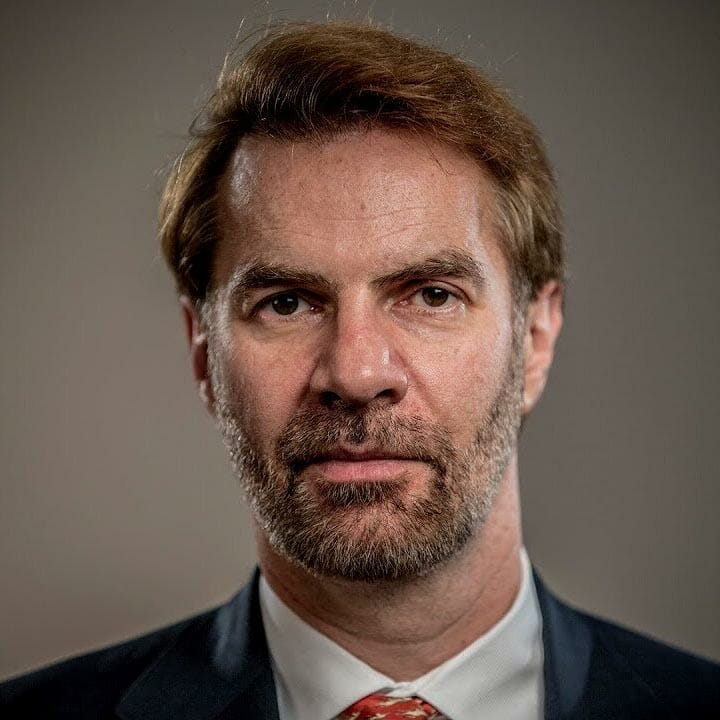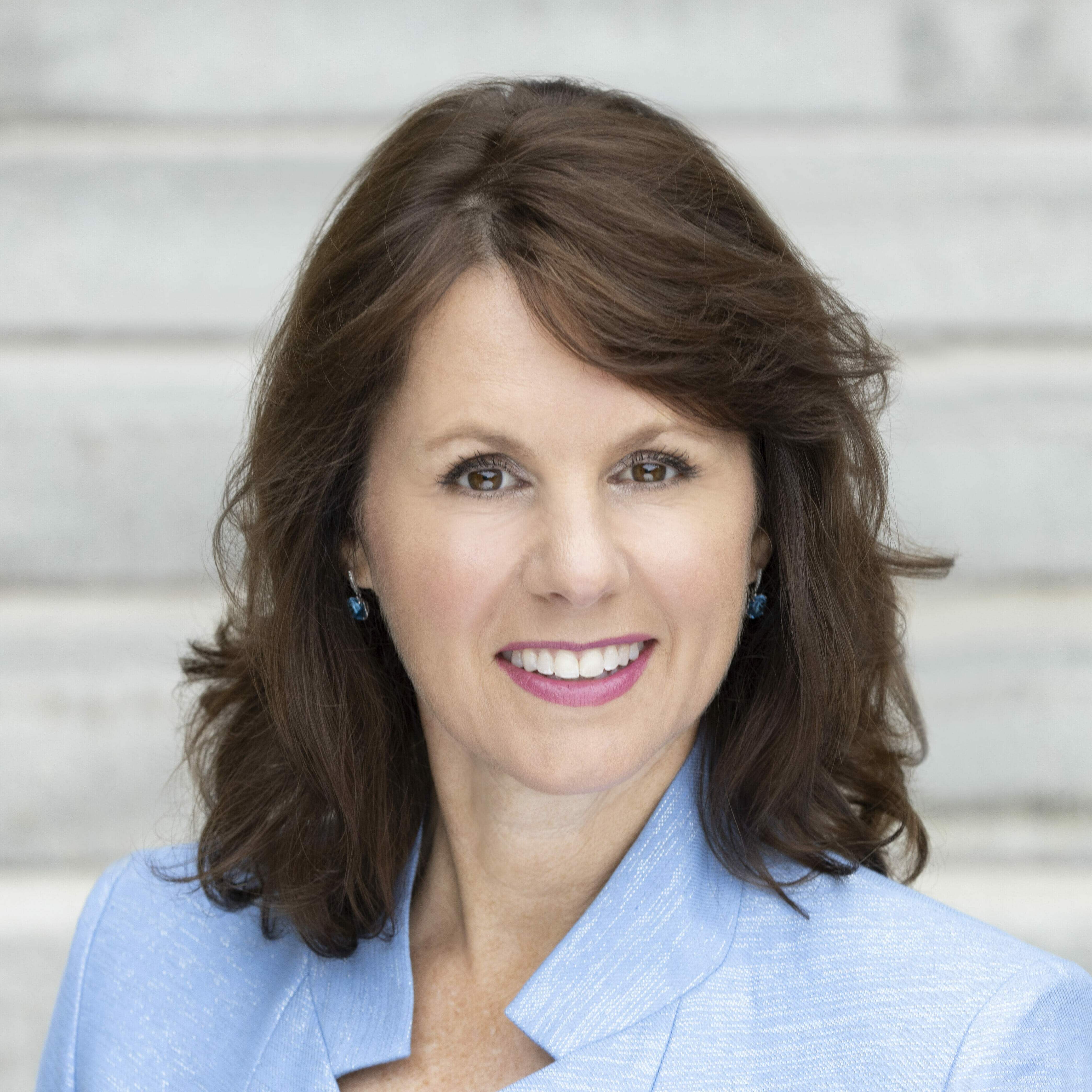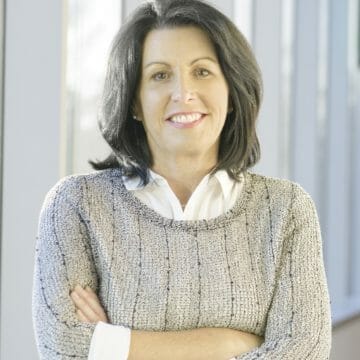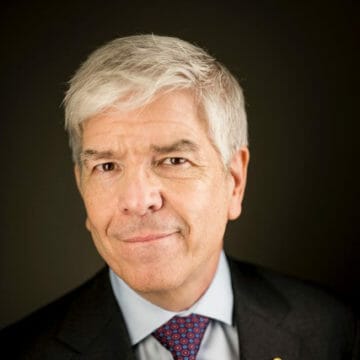Videos
Learn More About Raffaella Sadun
Organizations have been studied for decades to identify new strategies for achieving effective management, a flexible workforce and increased efficiency. But one question persists at the center of all this research: why are some people and places better at adopting basic management practices than others?
According to Raffaella Sadun, the Charles E. Wilson Professor of Business Administration at Harvard Business School (HBS), one reason for this paradox is that historically, what’s been communicated about good leadership isn’t based on sound realities and facts. An organizational economist whose unique blend of data-driven analysis, big-picture thinking and strategic reskilling leads to transformative changes within firms, Sadun seeks to understand why some people are better at being leaders than others.
“Overall, the functioning of public and private organizations depends on leadership and culture,” explains Sadun, whose roadmaps reveal how to create a workforce that’s not just tolerant of change but embraces it to drive lasting success. “However, the current narrative often celebrates ‘superhero’ leadership and forgets that the leaders that are able to put basic management practices in place – ‘boring leaders’ – can do amazing things for organizations. Basic management can create a competitive advantage for the companies that take it seriously. My research has shown that management practices vary quite a lot within industries and around the world — and that companies with good management are significantly more profitable.”
Noting that great leadership takes both universal skills and context-specific ones, Sadun emphasizes that by focusing on three facets of good management – target-setting, incentives and monitoring – firms’ performance improves. Her deep study of worldwide best practices provides a treasure trove of options for organizations interested in exploring multiple potential routes to success.
Achieve Operational Excellence by Unleashing the Power of Managers
Managers hold immense power in shaping the culture, performance and outcomes of their teams and organizations, says Sadun, Faculty Chair of HBS’s Strategy Unit Executive Education Program. But the managerial skills required for 21st-century leaders are changing. As it turns out, the skills needed in management are often not the skills people are hired for or the skills they are trained to perform.
As an advisor to organizations and governments around the globe, Sadun expertly pinpoints the new skills needed across all levels of an organization as business operations become more complex, workforce diversity grows and technology evolves. By refocusing the lens on which abilities are most important, she helps managers become adept communicators, relationship builders and people-oriented problem solvers so they can make better, more informed decisions and drive positive change within organizations.
“Though core management practices may appear to be relatively simple — in that they often rely on nontechnological investments — they are not light switches that can be flipped on and off at will,” points out Sadun, who was named to the 2023 Thinkers50 Radar list, which spotlights thought leaders with ideas most likely to shape the future of management. “They require a profound commitment from the top, an understanding of the types of skills required for adoption and — ultimately — a fundamental shift in mentality at all levels of the organization.”
Sadun’s passion for understanding management practices has taken her on a global journey, leading her to co-found several large-scale projects to measure managerial behavior in organizations, such as the World Management Survey, the Executive Time Use Study and the first large-scale management survey in hospitals, MOPS-H, conducted in partnership with the US Census Bureau. As she breaks down in her HBR McKinsey Award-winning article, “Why Do We Undervalue Competent Management?”, achieving operational excellence is still a massive challenge for many organizations – even well-informed and well-structured ones. However, Sadun has found that simply moving a firm from the worst 10% to the best 10% of management practices is associated with a $15M increase in profits, 25% faster annual growth, and 75% higher productivity. Challenging the common assumption that everyone needs to be a strategist, Sadun proposes that, by acting like a manager instead, anyone can achieve these incredible results.
Unveil the Big Picture to Optimize Rapid Reskilling
Another critical element of Sadun’s approach is the importance of reskilling within organizations. At the Digital Reskilling Lab at HBS, where Sadun is co-leader, she studies the effectiveness of the extensive digital training investments made in the private and public sectors. Her research emphasizes the value of aligning reskilling efforts with business strategy, ensuring that employees are equipped with the right tools and capabilities to drive efficiency and effectiveness within their roles.
“We are collecting evidence on companies that are at the frontier of reskilling to understand how they do it and the challenges they had to overcome ” she describes. “A common challenge is that often training programs are designed just from an HR perspective without a focus on interface or content and are missing the connection with the strategic objectives of the organization. It’s imperative to show a clear business outcome for why someone is learning a new skill for them to want to be successful.”
Sadun’s research shows that, by giving employees a big-picture view of how they slot into a business’s goals, they become more engaged, productive and purposeful. Her blueprints show organizations how they can create and deploy programs that instill flexibility and a willingness to address challenges. No time in recent memory demanded quicker change than the onset of the global pandemic. Sadun implemented her methods while serving as an economic advisor to the Italian government to help reshape their post-Covid economy in 2020 and 2022. Her learnings, as described in “Lessons From Italy’s Response to Coronavirus” reflect a keen understanding of how to achieve massive mobilization, even in uncertain times. As a result of her work, she received the highest-ranking order in Italy, the Grande Ufficiale dell’Ordine ‘Al Merito della Repubblica Italiana’ in 2021. In 2022, she was awarded the Prize Fondazione de Sanctis per le Scienze Economiche.
When rapid changes demand that organizations respond quickly, they need to harness the power of proven management skills to achieve their goals. By uncovering how “basic” management and organizational practices vary across the globe – and how this affects productivity at the micro and macro levels – Sadun has emerged at the forefront of identifying key drivers of growth in organizations worldwide.
Raffaella Sadun is the Charles E. Wilson Professor of Business Administration at Harvard Business School. Her research focuses on managerial and organizational drivers of productivity and growth in corporations and the public sectors.
Sadun currently co-leads the Digital Reskilling Lab at HBS, where she studies the effectiveness of large-scale digital training investments made in private and public sector organizations. She also serves as director of the National Bureau of Economic Research Working Group in Organizational Economics, faculty co-chair of the Harvard Project on the Workforce, co-editor for the Journal of Law, Economics and Organization and associate editor for Management Science. She is the author of articles published in journals such as “The Quarterly Journal of Economics,” “American Economic Review” and “Journal of Political Economy.”
Sadun served as an economic advisor to the Italian government in 2020 and 2022 and received the honor of Grande Ufficiale dell’Ordine “Al Merito della Repubblica Italiana,” the highest-ranking order of the Republic awarded for “merit acquired by the nation” in 2021. In 2022 she was awarded the Prize “Fondazione de Sanctis per le Scienze Economiche.” Sadun received her Ph.D. in Economics from the London School of Economics.
Raffaella Sadun is available to advise your organization via virtual and in-person consulting meetings, interactive workshops and customized keynotes through the exclusive representation of Stern Speakers & Advisors, a division of Stern Strategy Group®.
Reskill and Reshape Workforces to Thrive with AI, Not Just Survive
In the quickly evolving age of AI, businesses face a significant challenge: integrating groundbreaking technology without sidelining their workforce. In a compelling article in Harvard Business Review, international reskilling expert Raffaella Sadun emphasizes that a firm’s response to AI is what ultimately determines its success. A distinguished Harvard Business School professor featured on the 2023 Thinker’s 50 Radar list, Sadun explains that leaders must connect AI to both their overarching corporate vision and individual employee development. This demonstrates to their workforce that the goal is not merely about tech adoption but about crafting a resilient, adaptable team. A dynamic speaker, Sadun provides an actionable roadmap on reskilling and workforce strategy, ensuring AI becomes an asset and not a threat.
Integrate Leadership and Culture to Achieve Lasting Strategic Success
In today’s dynamic business landscape, the key to achieving lasting success, according to Raffaella Sadun, renowned organizational economist and professor of Business Administration at Harvard Business School, rests in the effective integration of leadership, culture and strategy. Together, these elements play a pivotal role in the functioning of public and private organizations, often more so than any other factor. A fascinating researcher whose award-winning work earned her a place on the Thinkers50 Radar list in 2023, Sadun’s unique blend of data-driven analysis, big-picture thinking and strategic reskilling helps organizations understand how to bring leadership, culture and strategy together for transformative changes. The Faculty Chair of the Strategy Unit Executive Education Program at Harvard Business School, Sadun’s work has demonstrated that achieving operational excellence requires a fundamental shift in mentality and a profound commitment from top leadership. She highlights the pivotal role of managers in shaping the culture, performance and outcomes of their teams and organizations. By leveraging data-driven approaches and enabling managers to learn and leverage new skills, Sadun helps businesses harness the power of proven management practices to drive positive cultural change and achieve long-term success.
Reskilling Your Organization: The Power of the Big Picture Perspective
Aligning reskilling with strategy has become crucial for organizations to thrive and adapt to changing times. But how can you ensure everyone in your organization is actively on board in the reskilling process? According to Harvard Business School professor and organizational economist Raffaella Sadun, by giving employees a big-picture view of how their reskilling efforts contribute to the organization’s goals, they become more engaged, productive and purposeful. At the Digital Reskilling Lab at HBS, where Sadun is co-leader, she studies the effectiveness of the extensive digital training investments made in the private and public sector. She’s found that by providing a clear business outcome for why employees are learning new skills, organizations can create programs that foster willingness to embrace challenges and adapt to changing circumstances. Her research, which earned her a place on the Thinkers50 Radar in 2023, demonstrates why these practices are essential for organizations adopting new technology, experiencing layoffs or staffing changes, or adapting to other unpredictable situations. Forthright and able to break down her research into easy-to understand and actionable roadmaps, Sadun’s approach supports organizations in reskilling efforts that build a workforce that can successfully navigate rapid changes and achieve their goals.
How to Overcome Barriers and Navigate Change with Confidence
During uncertain times, organizations may find their workforce is more resistant to new learning, reskilling, or any other changes than they were previously. What companies are successfully navigating the challenges of change management around the world? Renowned Harvard Business School (HBS) professor and organizational economist Raffaella Sadun’s passion for management has led her to co-found numerous large-scale projects to measure managerial behavior and how it impacts public and private enterprises around the world. Drawing on her deep expertise in organizational dynamics, Sadun unpacks the complexities of overcoming friction and barriers to change. From conflicts with unions in Europe to building coalitions with unions in India, Sadun offers practical strategies for making flexibility appealing to individuals and driving meaningful change. Her groundbreaking research, which she shares with executives as the Faculty Chair of the Strategy Unit Executive Education Program at HBS, provides a window into reskilling efforts in different institutional contexts, including interviews with automotive companies in across the world. Sadun’s compelling analysis and practical solutions for transforming challenges into opportunities and driving positive change provides valuable guidance for leaders and executives seeking to thrive and become more resilient in today’s fast-paced business landscape.

Remote Work Across Jobs, Companies, and Space
(University of Chicago, Becker Friedman Institute for Economics, March 2023)

The Impact of Covid-19 On Digital Communication Patterns
(Humanities and Social Science Communications, 2022)

The World Management Survey at 18: Lessons and the Way Forward
(Oxford Review of Economic Policy, 2021)

How Does Working From Home During Covid-19 Affect What Managers Do? Evidence From Time-Use Studies
(Human-Computer Interaction, 2021)

Turbulence, Firm Decentralization and Growth in Bad Times
(American Economic Journal: Applied Economics, 2021)
